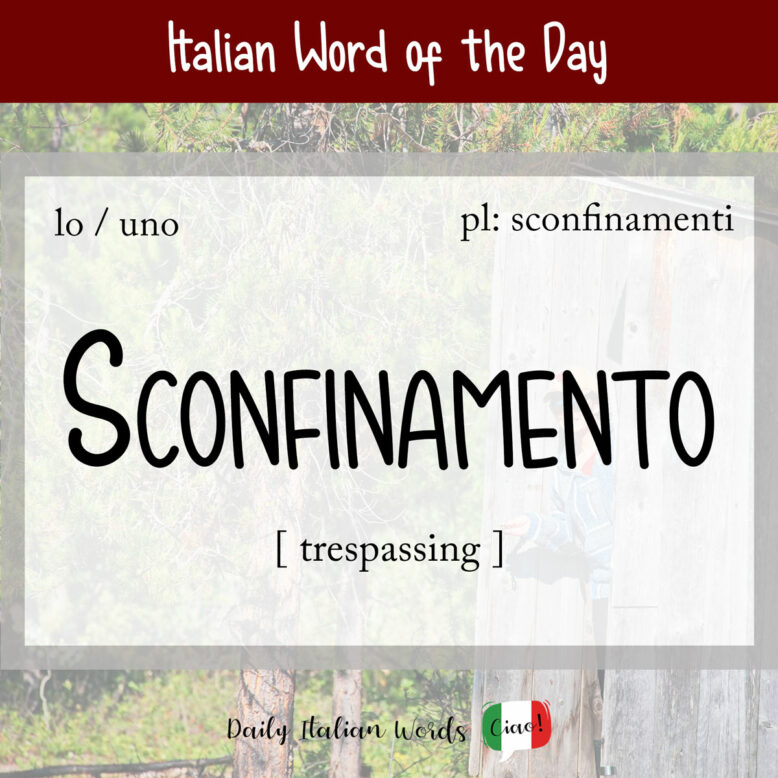The word for the act of trespassing is sconfinamento. It is the combination of the verb sconfinare (meaning to trespass or to cross over) and the suffix -mento (-ment), which forms nouns that represent the action of a related verb.

Sconfinamento is masculine, and the plural is sconfinamenti. Here are the definite and indefinite articles it takes:
lo sconfinamento
uno sconfinamento
gli sconfinamenti
degli sconfinamenti
I dimostranti protestarono davanti al municipio per una settimana. Tre di loro furono arrestati per sconfinamento.
Demonstrators protested outside the town hall for a week. Three of them were arrested for trespassing.
Another translation for the verb to trespass in Italian is oltrepassare and it is used specifically for properties. You will see it on signs that warn people about trespassing over a fence or train tracks, for example.

The word trespassing in English is normally used when one person or a group of people enter the property of another person without permission, but the definition of sconfinamento in Italian also extends to border violations, especially by military troops.
Lo sconfinamento di truppe militari ha generato un clima di tensione tra i due paesi.
The violation of the border has created a climate of tension between the two countries.
You can also use sconfinamento figuratively to describe something, such as a discussion or speech, goes beyond the limits of what is morally, socially or legally acceptable.
Trovo che ci sia qualche sconfinamento nel suo libro.
I find that some parts of his book overstepped the mark.
In economics, it also means to exceed a financial target or limit. You’ll often hear the term sconfinamento bancario, for example, which is when a customer, who holds a credit line in a current account, temporarily uses an amount higher than that previously established as the maximum amount of credit. (Source: Bankpedia)

Heather Broster is a graduate with honours in linguistics from the University of Western Ontario. She is an aspiring polyglot, proficient in English and Italian, as well as Japanese, Welsh, and French to varying degrees of fluency. Originally from Toronto, Heather has resided in various countries, notably Italy for a period of six years. Her primary focus lies in the fields of language acquisition, education, and bilingual instruction.


